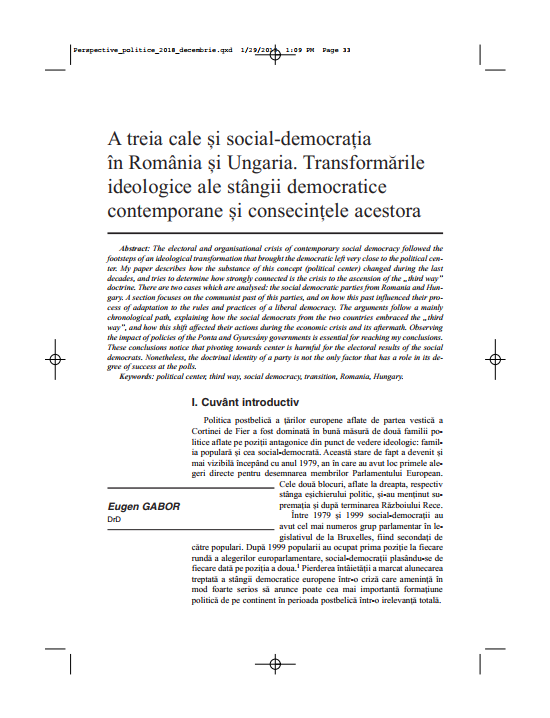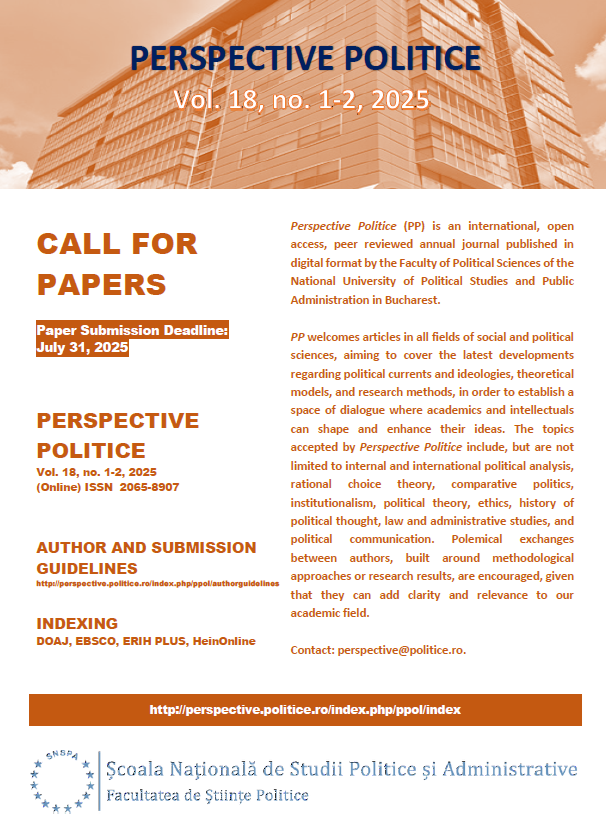A treia cale si social-democratia în Romania si Ungaria. Transformarile ideologice ale stangii democratice contemporane si consecintele acestora
Abstract
The electoral and organisational crisis of contemporary social democracy followed the footsteps of an ideological transformation that brought the democratic left very close to the political center. My paper describes how the substance of this concept (political center) changed during the last decades, and tries to determine how strongly connected is the crisis to the ascension of the „third way” doctrine. There are two cases which are analysed: the social democratic parties from Romania and Hungary. A section focuses on the communist past of this parties, and on how this past influenced their process of adaptation to the rules and practices of a liberal democracy. The arguments follow a mainly chronological path, explaining how the social democrats from the two countries embraced the „third way”, and how this shift affected their actions during the economic crisis and its aftermath. Observing the impact of policies of the Ponta and Gyurcsány governments is essential for reaching my conclusions. These conclusions notice that pivoting towards center is harmful for the electoral results of the social democrats. Nonetheless, the doctrinal identity of a party is not the only factor that has a role in its degree of success at the polls.




